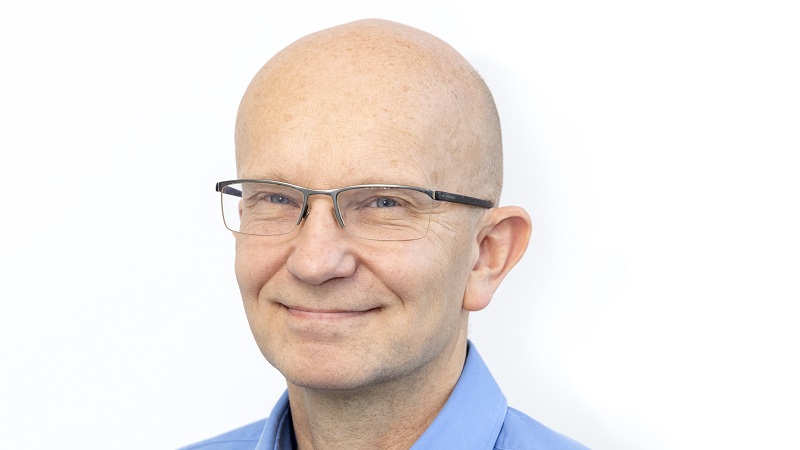RSMR has just celebrated 15 years in the industry and co-founder Ken Rayner believes it has carved out a niche in that time by placing more emphasis on qualitative rather than quantitative factors when rating funds.
The firm’s fund ratings are now used by more than 15,000 advisers across the UK and it’s come a long way since it was founded in 2004 by Rayner, together with Geoff Mills and Caroline Spencer.
The trio started RSMR having been made redundant from building society Bradford & Bingley when its IFA business was bought by Legal & General. At this point they were faced with the tricky decision of whether to join another firm or to go it alone with their own venture.
They decided to take the latter route because at the time Bradford & Bingley had one of the most widespread advisory networks in the country, and Rayner, Mills and Spencer had forged good relationships with a decent chunk of them, having done investment manager research on their behalf.
Rayner had joined Bradford & Bingley in 1990 and held several product and marketing roles, while Mills had been with the firm since 1999 as leader of the building society’s financial services team. Spencer, who had joined in 2000, was a researcher supporting the IFA salesforce.
“We thought we could at least start a process whereby we worked doing research consultancy work,” says Rayner. “We didn’t have a specific point of attack, we just wanted to start our own business – and that’s how it began.”
An open door
As time passed, an increasing number of IFAs began enquiring about RSMR’s services and over the first two or three years, it started to build out its investment research and portfolio capabilities.
According to Rayner, an inflection point came in 2010 when rival ratings firm Morningstar bought Old Broad Street Research and, in doing so, narrowed the number of providers in the market, which opened doors for RSMR.
“A number of companies came to us in the investment community and said, ‘You’re doing this work anyway, why don’t you put your own ratings up and develop a business that can challenge Morningstar?’.”
When the firm was established, Rayner was doing all the research but the team now comprises nine individuals, including two external consultants who are focused on the Asia and discretionary fund management (DFM) markets.
Rayner keeps in touch with a few funds and clients but, as chief executive, a lot of his time is spent running the business as well as sitting on the investment committees of several advice firms.
The company has since expanded to investment trust and sustainable ratings, as well as conducting due diligence on DFMs, and is based in Silsden, West Yorkshire. Though the team regularly travels to London, Rayner is keen to dispel the myth that you need to be in the City to do the job adequately, especially since the coronavirus pandemic took hold and people are communicating virtually.
The important thing, he says, is the solid relationships the firm has forged across the industry in the past 15 years. “You don’t have to be there to ‘be there’,” he says. “We’re able to get the same information. But I think if you’re starting a business now, it would be a bit more difficult.”
People power
In terms of RSMR’s process, it uses the Investment Association sectors as its universe and initially applies quantitative filters. Where Rayner believes it differs from other ratings agencies, however, is that about 70% of the process is qualitative.
This qualitative element involves interviews with managers that allow the team to form its own opinion and potentially override the quant data. Debate takes place at a monthly meeting, where team members bring together funds from certain IA sectors and review the data, look at the rated funds and those they think warrant consideration for rating.
Rayner explains: “Our one concern was if you base everything on data, a lot of things point in the same direction for a period and then you can too easily be thrown by an inflection point or an unexpected event such as Brexit, the global financial crisis and, more recently, Covid-19.
“You end up not having the variety and choices a portfolio needs to deliver in different circumstances.”
The qualitative element also assesses a fund’s core philosophy, whether that has changed over time and how it is being applied to the portfolio. Is the process the manager describes to RSMR reflected in the portfolio?
RSMR also looks at the effect of different market cycles on style and process, and how a manager has adapted.
Rayner also thinks it is crucial to get under the skin of the individual running the money to understand whether they have become a better manager throughout their tenure.
“All those ‘touchy-feely’ factors that only as an individual can you base an opinion on,” Rayner adds.
RSMR still rates 45 of the funds from its first tranche published to clients in July 2006 when Rayner was solely carrying out the research. Some of the fund names will have changed in that time, of course, and not all will have been rated continuously since then.
“Most funds have grown substantially since we first started rating them and, in some ways, that’s a good thing. But equally, that brings more issues: can a manager run a larger fund on the same basis as a smaller one? You have to take those things into consideration when thinking on a qualitative basis.”
Rayner also refers to the value versus growth argument when extolling the virtues of a predominantly qualitative approach, given how the two styles have shifted in and out of favour in recent months.
“The value/growth argument shifted in November last year when we went a little bit more value-orientated but has since moved back a bit. It was a situation where if you hadn’t got funds available in that area, you would have looked really bad for six months or so.”
An uneven playing field
According to Rayner, Blackrock European, Baillie Gifford and Rathbone Income are all teams that have stood out over the past 15 years in terms of both quantitative and qualitative factors.
He says Baillie Gifford has a culture that really values its employees and allows them to participate in and grow with the business.
“That seemed to us a really good culture, and while they weren’t performing particularly well in 2004, there were some good funds and we saw a reasonable long-term perspective. Since then, they’ve come on leaps and bounds, of course.”
Using names like Blackrock in the same sentence as Rathbones begs the question about boutique versus large asset managers and whether Rayner has a preference. He says there is a place for both but that mounting regulatory pressures from Mifid II and value-for-money assessments has made life more difficult for the smaller players.
“There’s a heck of a lot of administrative requirements now, which is always going to be easier for Blackrock to deal with than a much smaller boutique,” he says.
“There are barriers there, particularly in terms of the cost of having to adhere to regulation and doing exactly the same as some of the bigger managers where the costs of implementing regulation across 100 funds is less than for just two or three.”
When it comes to assessing fund costs, Rayner says RSMR views each fund relative to the market after looking at the qualitative elements. The team doesn’t exclude a manager on these grounds because the quant test considers performance after fees.
Rayner explains: “If you’ve got a higher-than-normal average cost but you’re performing, then clearly you’re able to deal with that situation and incorporate the costs. That net fi gure is more important to us than the fact you’re 10 basis points more expensive than a competitor.”
That said, Rayner notes RSMR does keep cost in mind when constructing portfolios for IFA clients and this is where passive funds come into play. Passives are used in portfolios even though RSMR does not focus on rating them.
A personal touch
Rayner also notes that several electronic or dynamic tools have entered the market which investors and advisers use to collate information and provide risk profiling. The result is a homogenous set of portfolios across the marketplace.
However, he sees RSMR’s role of providing portfolios, fund lists or help for investment committees as strong enough to hold its own in supporting advisers, leaving them more time to focus on financial planning rather than investment.
Looking ahead, Rayner says with growing volumes of consolidation in the marketplace, the number of touchpoints for advisers is narrowing and it is RSMR’s intention to remain a key player.
“We want to be there as a choice – and a good choice,” he says. “We’ve never gone hell for leather for expansion as we’d rather have the quality and resource in place. But equally we recognise we’re in a competitive environment with other providers of these services.”
He says one focus will be on growing assets in its managed portfolio service offering in the discretionary investment market. “We think we’ve demonstrated very strong performance with our clients. And there’s no reason why we can’t expand on that,” says Rayner.
Another area is adding exchange-traded funds (ETFs) to RSMR’s ratings service as these vehicles become more widely used in portfolios.
“ETFs are not available as widely as they could be on platforms that our advisers use, but I think in the future they have to be taken into consideration, especially since there are more options and choices in that space.”
Finally, Rayner acknowledges the need to keep pace with the ever-evolving digital landscape when communicating with clients and the wider industry. This includes providing good content that makes useful reading for both advisers and clients.
“We need to think in simpler ways to get our services in front of people.”
He adds: “Digital is such an important part of how people access information, particularly since Covid-19, that we’d be stupid not to.”
Iron man
In July, Ken Rayner completed the gruelling endurance event, Outlaw Triathlon, which comprised a 2.4-mile swim, 112-mile bike ride and a marathon. He started at 6.05am and finished at 8pm, completing in 13 hours, 44 minutes and 48 seconds.
“I’d been building up to it for a while,” he explains. “I joined a triathlon club a few years ago for exercise and this was my first ever long-distance event, so it was really exhausting.”
Rayner has spent the past 20 years regularly playing field hockey, but he broke his ankle about five years ago and needed to rehabilitate.
“One of the rehabilitation processes was swimming, so I joined a triathlon club to learn how to swim properly and I got gradually roped into doing events. Eventually it morphed into: ‘Okay, I might do an iron man-type event.’
“I was intending to do it in 2019 but it got rained off that year and then the next year Covid cancelled everything, so it’s taken two and a half years to get to this point.
“I was continuing to train a little bit for each year and it’s the training that takes the time, so I’m not sure Mrs Rayner will submit to another year of training.”
This article first appeared in the September 2021 issue of Portfolio Adviser magazine











